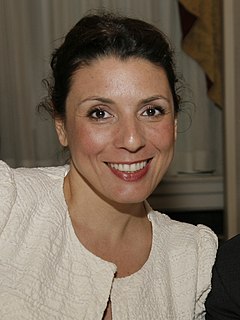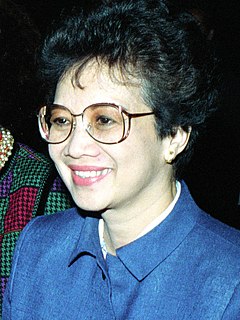A Quote by Mona Eltahawy
For years I looked at the Iranians with envy - not at the outcome of their 1979 revolution, but because it was a popular uprising, not a euphemism for a coup.
Related Quotes
What is applicable is to understand that first of all China has undergone a huge revolution in the last years. Anyone who saw China as I did in 1971 - and for that matter even in 1979, because not much had changed between 1971 and 1979 - and sees China today, knows one is in a different economic system.
When the Islamic revolution began in 1979 under the leadership of Ayatollah Khomeini, it aroused considerable admiration in the Arab street. It presented a model of organised popular action that deposed one of the region's most tyrannical regimes. The people of the region discerned in this revolution new hope for freedom and change.
In 1953, the United States played a significant role in orchestrating the overthrow of Iran's popular prime minister, Mohammed Mossadegh. The Eisenhower administration believed its actions were justified for strategic reasons, but the coup was clearly a setback for Iran's political development and it is easy to see now why many Iranians continue to resent this intervention by America in their internal affairs.
The reason why no one had spoken to [Iranians] for the last years is because they sponsored Hezbollah, Hamas, the Palestinians, Al Qaeda, 9/11. The last time anyone spoke to the Iranians was when Ronald Reagan said, 'I've just been elected and you better let our hostages go or you guys are absolutely screwed'.
Most Iranians are sick and tired of revolutions. They've had one for the last 25 years, and they don't want another one. Those who've tried to spark another revolution have failed time and again. I don't think there's any evidence that somehow, if the U.S. gave these guys the high sign, it would make regime change somehow more likely. Every time the U.S. has tried to interfere in Iranian affairs to help a particular group of Iranians, it's backfired on us, and hurt the group we tried to help.
Our support for the Shah, the CIA coup in 1953 - has become infused into the Iranian political discourse. The regime that came to power in 1979 during the Iranian revolution actually defined itself as anti-American, and that's now a critical ingredient in the Iranian domestic political debate. That really is the source of our problems - the regime in Tehran continues to see itself as opposing the US. In their eyes, everything the US does is directed at them in a very malevolent way, and therefore they have to fight back against it.
My biggest disappointment was, of course, the coup attempts, ... The economy was proceeding very well, but in 1989 we had the most serious coup attempt and ... many of the investors who were set to come here had to tell me that they chose to go to other countries because of the uncertainty brought about by (the coup attempt.) If that had not happened, I'm sure our economy would just be booming today.
































